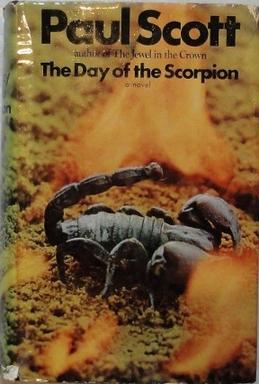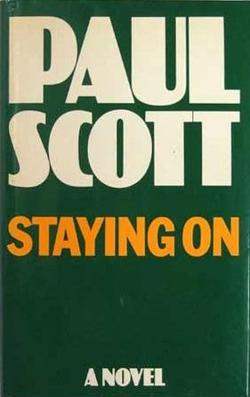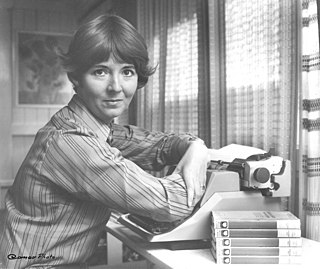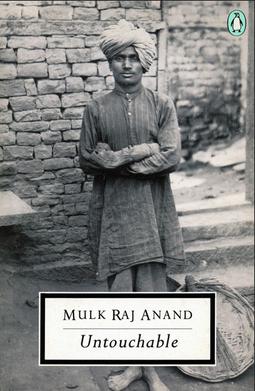
Room at the Top is a 1959 British drama film based on the 1957 novel of the same name by John Braine. It was adapted by Neil Paterson, directed by Jack Clayton, and produced by John and James Woolf. The film stars Laurence Harvey, Simone Signoret, Heather Sears, Donald Wolfit, Donald Houston, and Hermione Baddeley.

The Jewel in the Crown is a 1984 British television serial about the final days of the British Raj in India during and after World War II, based on British author Paul Scott's Raj Quartet novels. Granada Television produced the series for the ITV network.
Sharpe is a series of historical fiction stories by Bernard Cornwell centred on the character of British soldier Richard Sharpe. The stories formed the basis for an ITV television series featuring Sean Bean in the title role.

Patricia Edwina Victoria Knatchbull, 2nd Countess Mountbatten of Burma, Baroness Brabourne,, was a British peeress and a third cousin of Queen Elizabeth II. She was the elder daughter of Admiral of the Fleet the 1st Earl Mountbatten of Burma and of heiress Edwina Ashley. She was the elder sister of Lady Pamela Hicks, a first cousin of Prince Philip, Duke of Edinburgh, and the last surviving baptismal sponsor to King Charles III. She was a great-great-granddaughter of Queen Victoria.

The Afrīdī is a Pashtun tribe present day tribal areas in Khyber Pakhtunkhwa, Pakistan
The Raj Quartet is a four-volume novel sequence, written by Paul Scott, about the concluding years of the British Raj in India. The series was written during the period 1965–75. The Times called it "one of the most important landmarks of post-war fiction."

The Day of the Scorpion is a 1968 novel by Paul Scott, the second in his Raj Quartet. It is set in India during World War II as the influence of the British erodes. The novel focuses on old Raj family, the Laytons, the aftermath of the Mayapore incident focused on in The Jewel in the Crown, the Indian politician Mohammed Ali Kasim, and events in the princely state of Mirat.

Dorothy Emily Stevenson was a best-selling Scottish writer. She published more than 40 "light romantic novels" over a span of more than 40 years.

The Jewel in the Crown is a 1966 novel by Paul Scott that begins his Raj Quartet. The four-volume novel sequence of the Quartet is set during the final days of the British Raj in India during the Second World War. The novel is written in the form of interviews and reports of conversations or research and other portions are in the form of letters or diary entries. The novel focuses on the triangle of an English woman, an Indian man, and a British police superintendent, setting up the events of subsequent novels in the series. It is considered Scott's "major work." The title itself, which is also an expression for something most valuable, refers to the fact that India was considered to be the most valuable possession of the British Empire. The plot has direct similarities to the novel A Passage to India by E.M. Forster published in 1924.

A Division of the Spoils is the 1975 novel by Paul Scott. It is the fourth and final book of his Raj Quartet. The novel is set in the British Raj. It follows on from the storyline in The Jewel in the Crown, The Day of the Scorpion, and The Towers of Silence. Many of the events are retellings from different points of view of events that happened in the previous novels.

Staying On is a novel by Paul Scott, which was published in 1977 and won the Booker Prize.
Mary Jo Putney is a best-selling American author of over twenty-five historical and contemporary romance novels. She has also published romantic fantasy novels as M.J. Putney. Her books are known for their unusual subject matter, including alcoholism, death, and domestic abuse.

Juliet E. McKenna is a British fantasy author. Her novels mostly form part of series, five series as of 2022.

Margaret Way was an Australian writer of romance novels and women's fiction. A prolific author, Way wrote more than 120 novels since 1970, many through Mills & Boon, a romance imprint of British publisher Harlequin UK Ltd., owned by Harlequin Enterprises.
Karen Rose Smith is an American author born in Pennsylvania. Her first romance was published in 1992; her 97th novel, a mystery, will be published in 2017. It is the sixth in her eight book Caprice De Luca Home Staging mystery series. Her Daisy's Tea Garden mystery series will begin in 2018. She has written for Meteor/Kismet, Kensington, Silhouette and Harlequin. She has also indie-published novels and short story collections in e-book format. Twice a winner of New Jersey's Golden Leaf Award in Short Contemporary Romance, she has also been honored with CRA's Award Of Excellence for short contemporary, as well as the Golden Quill for Traditional Romance. Her romances have made the USA TODAY list and Amazon's romance bestseller list. Her mystery, Staged To Death, climbed to #1 on Amazon's cozy mystery bestseller list. Married, she spends her days writing, gardening, cooking and keeping her four rescued cats company.

The Jewel of Medina is a historical novel by Sherry Jones that recounts the life of Aisha, one of Muhammad's wives, from the age of six, when she was betrothed to Muhammad, to her death.

Untouchable is a novel by Mulk Raj Anand published in 1935. The novel established Anand as one of India's leading English authors. The book was inspired by his aunt's experience when she had a meal with a Muslim woman and was treated as an outcast by her family. The plot of this book, Anand's first, revolves around the argument for eradicating the caste system. It depicts a day in the life of Bakha, a young "sweeper", who is "untouchable" due to his work of cleaning latrines.

First Daughter Suite is a chamber musical with music, lyrics, and book by Michael John LaChiusa. A continuation of his 1993 musical First Lady Suite, First Daughter Suite is composed of four narrative segments, each centered on the mothers and daughters of political families in United States history. The figures portrayed include the Nixon, Carter, Ford, Reagan, and Bush families. The musical premiered Off-Broadway in 2015 at The Public Theater.












